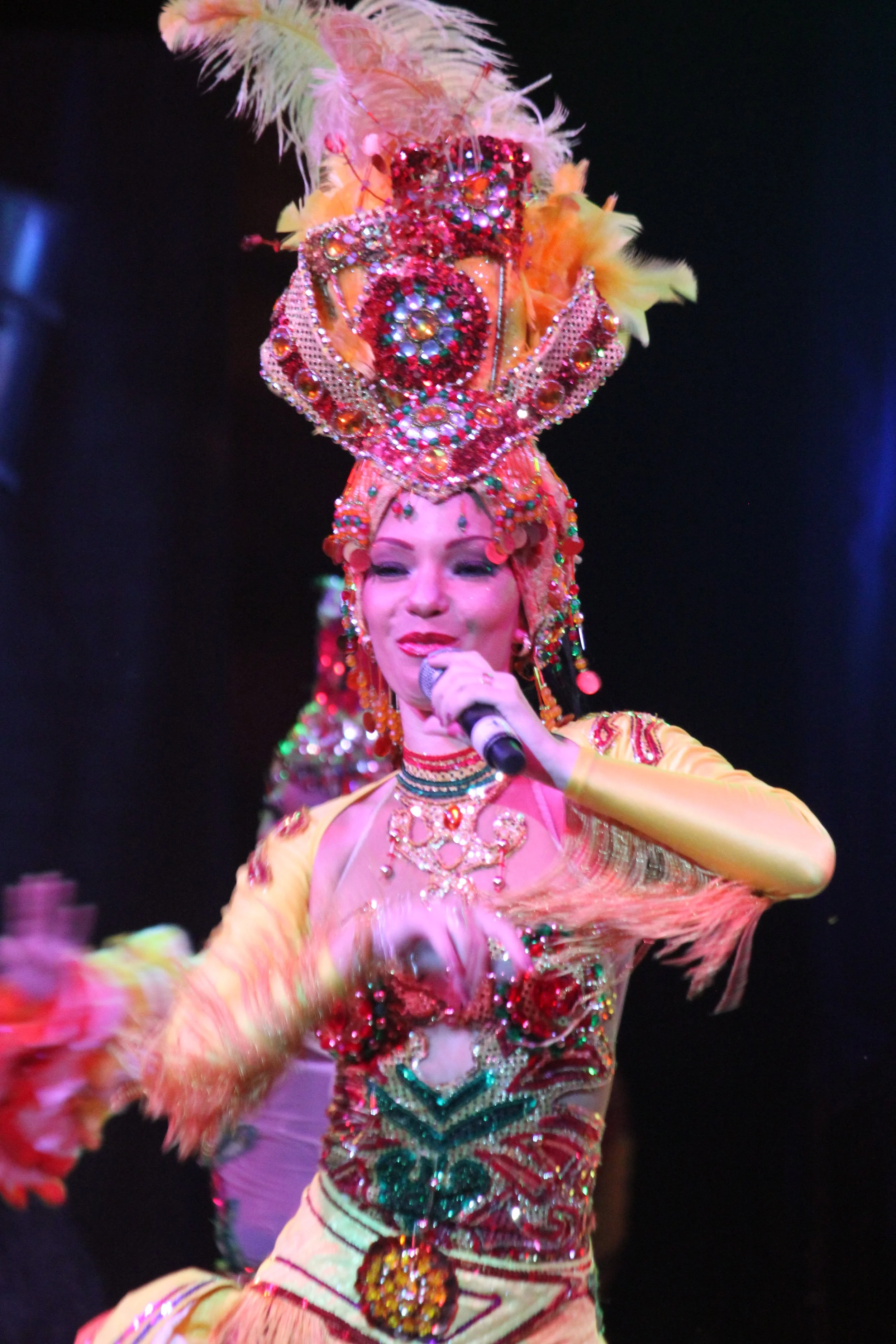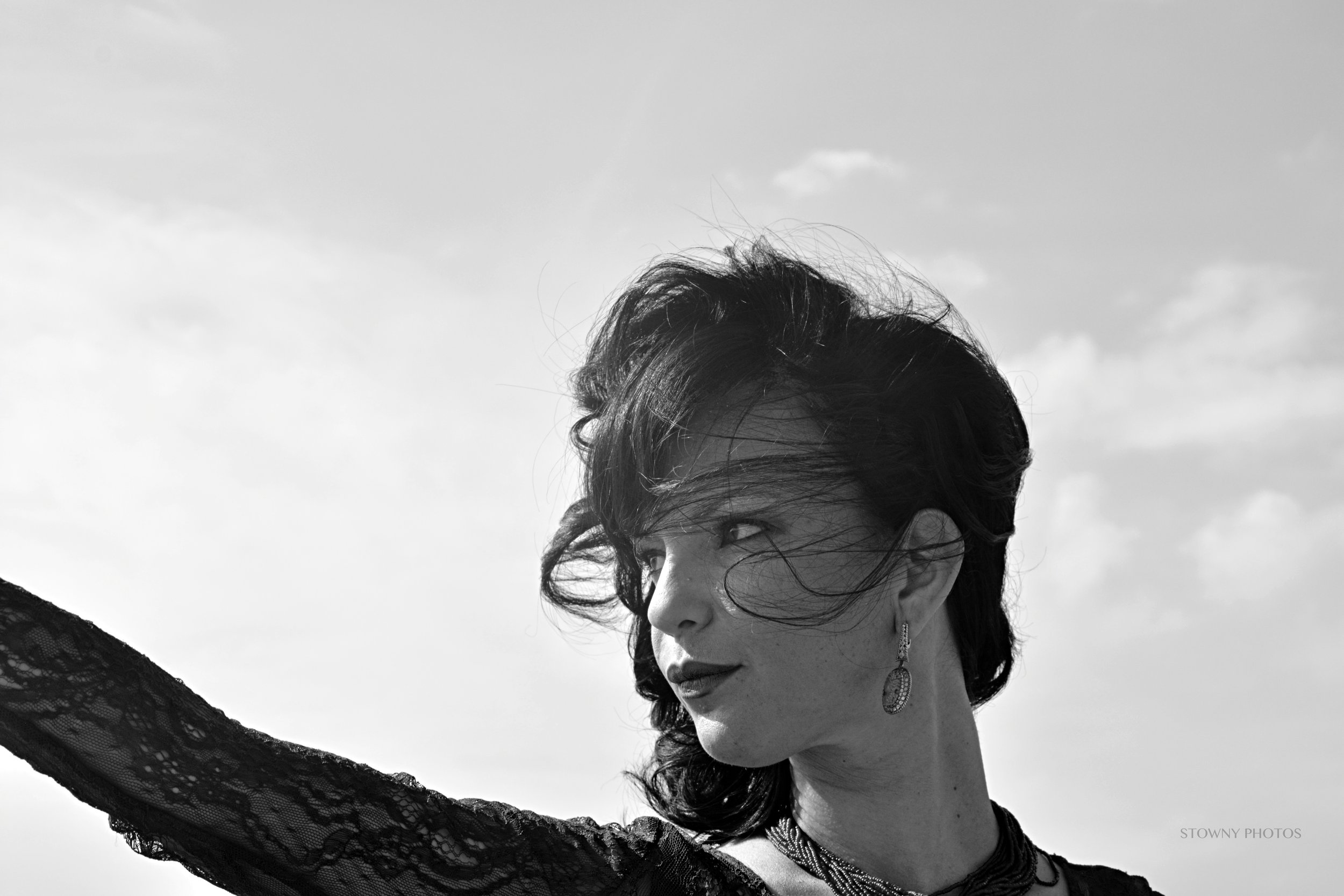Fresia: A Life in Motion, A Voice Across Borders
Fresia’s journey in music began in Havana, Cuba, where she was surrounded by melodies from an early age. "In my country, music is more than an art—it’s a way of life," she explains. "Some say that Cuban women are the only ones in the world who walk as if they were dancing, carrying the rhythm in their very essence." From childhood, she was immersed in the vibrant sounds of Cuban culture, shaping her deep connection to music.
Her father’s record player played a crucial role in her musical awakening. "The 1980s were a time of discovery for me, and my father’s record player became my portal to other worlds. Through its crackling speakers, Sailing by Christopher Cross transported me to open seas, Tchaikovsky’s Swan Lake unfurled grand ballets in my imagination, and the unmistakable voice of Bola de Nieve carried the weight of Cuban nostalgia. His rendition of Drume Negrita had a spellbinding effect on me, and even then, I recognized something profound in him—something akin to Louis Armstrong. Both artists, through their music, shattered barriers, carrying their voices beyond borders, triumphing over prejudice with sheer talent and raw emotion."
Music also ran in her family. Her aunt, Aurora Basnuevo—known to Cuba as Estervina La Mulatísima—was a renowned radio performer. "Her name still sparks smiles and nostalgia in those who heard her through the radio waves," Fresia says. "She wasn’t just a performer—she was a force of nature, a woman who carried the magic of storytelling in her voice and the fire of the Cuban spirit in her soul."
Fresia’s career took a significant step forward when she joined Tropicana, one of Cuba’s most famous cabarets. "Tropicana was my school—not only as an artist but as a woman. I first walked through its doors in August 2005, filled with dreams and with a timid voice that would soon learn to command the stage." The adjustment wasn’t easy. "Back then, I wore glasses and carried a shyness that contrasted with the splendor of Cuba’s most iconic cabaret. For the first three months, I had to leave my glasses in the dressing room, turning every night into a blind challenge. Imagine walking through lush vegetation, hidden platforms, and invisible staircases without seeing clearly—a risk that made every performance an act of faith."
Fresia spent over 15 years performing at Tropicana, where the demands of live performance became second nature. "My Christmas dinners turned into rushed lunches, my birthdays were celebrated in dressing rooms, and holidays had to adjust to the rhythm of the show. But one thing never changed: our ability to keep our family traditions alive, no matter how busy our schedules were."
A new chapter began when she moved to the Ozarks. "I came to the Ozarks chasing a dream—a dream of building a family, of finding a place where I belonged. What I didn’t expect was that I would find something even greater: a family of friends, bound not by blood, but by music, laughter, and the shared rhythm of life."
One night, she stumbled upon an opportunity that changed everything. "One day, scrolling through social media, I came across an event announcement. On a whim, I decided to drive to Springfield to see the show. That spontaneous decision led me to one of the most unexpected and beautiful encounters of my journey—I met the Brueggemann Gouge Jazz Band and Laura French. We introduced ourselves, and without hesitation, they extended an invitation for me to sing with them. That moment changed everything."
While performing in the Ozarks, she also discovered Bluegrass. "The first time I heard Bluegrass, it struck me as something entirely new, yet somehow familiar. It’s a style of music deeply rooted in tradition, blending influences from Appalachian folk, blues, and jazz. Its fast, energetic rhythm, rich vocal harmonies, and acoustic instrumentation create a raw, powerful sound. But there was something more—something that resonated with me beyond just the music. Then it clicked—the five-string banjo reminded me of the Cuban tres. It was as if two distant worlds, two separate histories, were whispering to each other through the strings of these instruments."
Looking ahead, Fresia remains deeply committed to her craft and has no plans to slow down. "I have so many dreams still waiting to be brought to life," she says. One of her biggest aspirations is to create a cultural exchange concert, bringing Cuban musicians to the U.S. and American musicians to Cuba. She would also Leo to write a book and create a documentary.
Throughout her career, she has learned that music is more than just performance—it is connection. "Whether you are performing for one person or a thousand, you must give it your all," she says, echoing the lessons passed down by her uncles. For Fresia, every song carries a story, and it is her responsibility to deliver it with authenticity. This belief has guided her through every stage of her journey, from Havana to the Ozarks.
As Fresia reflects on her journey, she sees music as more than just a profession—it is a bridge between cultures and a connection to the past that continues to shape her future. “Music has no borders,” she says. “It’s the one language everyone understands.” No matter where she goes, no matter the stage, music remains her anchor—a lifelong companion, a voice that tells her story, and a home that exists wherever the melody takes her.
www.youtube.com/@fresia.fresia
instagram: @fresiaoficial
facebook: fresia.blanco.56













